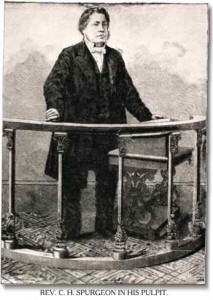In this series of posts I’ll be speaking to the preachers. All others are welcome to listen in, but I’ll be talking to those who share my calling as a proclaimer of God’s Word.
Gentlemen, we all want to preach. God has put that compulsion within us. Rightly, we all want to preach well. History affirms that one can preach without integrity, but eternity will reveal that no one ever preached well without it.
So, may I ask: What is integrity? What does it look like in a preacher? Perhaps an answer to those questions lies on the other side of an answer to this one: What is the opposite of integrity? Is it compromise? Is it a divided heart or mind? Are there truths that we, even as preachers, simply tip our hats at, but fail to truly believe? We expound them. We can alliterate three points related to them. But do we believe them? How does this relate to integrity in the pulpit?
I have never found a better explanation of integrity than that of Warren Weirsbe in his book The Integrity Crisis.
What is integrity? The Oxford English Dictionary says that the word come from the Latin integritas, which means ‘wholeness,’ ‘entireness,’ ‘completeness.’ The root is integer, which means ‘untouched,’ ‘intact,’ ‘entire.’ . . . A person with integrity is not divided (that’s duplicity) or merely pretending (that’s hypocrisy). He or she is ‘whole’; life is ‘put together,’ and things are working together harmoniously. People with integrity have nothing to hide and nothing to fear. Their lives are open books. They are integers.[i]
What, then, does that look like in the pulpit? In this series of posts I’d like to suggest six areas to which integrity is essential, if we as preachers are to preach well — by eternity’s and God’s accounting. I will take the suggestive approach, rather than a declaratory approach. I want to invite (even instigate) your thinking. To that end I’ll set forth both some questions and quotations in each area. First, then, is . . .
Integrity with God — Questions About Accountability
Questions & Queries:
- What makes for a “good sermon” in God’s estimation?
- What makes for a “good preacher” in God’s estimation?
- What issues do you picture God raising about your preaching when you stand for review at the judgement seat of Christ?
- What issues do you think God won’t raise that we now concern ourselves with?
- We often think of preaching with integrity in terms of our content and its conformity to the truth of God’s Word, what else may come into play as we consider preaching before God with integrity?
- What practical differences does the knowledge of that accountability make?
- What does it mean when we say, “I’m accountable before God for what I preach?”
- What does it mean when we say, “I’m accountable before God for how I preach?”
Notable & Quotable:
- “I know perfectly well that, wherever I go and preach, there are many better preachers known and heard than I am; all that I can say about it is that the Lord uses me.”[ii]
- “The preacher—His throne is the pulpit; he stands in Christ’s stead; his message is the Word of God; around him are immortal souls; the Savior, unseen is beside him; the Holy Spirit broods over the congregation; angels gaze upon the scene, and heaven and hell await the issue. What associations and what a vast responsibility!”[iii]
[i] Weirsbe, Warren W., The Integrity Crisis (Nashville: Thomas Nelson Publishers, 1998), 21.
[ii] Moody, D.L., quoted in Larsen, David L., The Company of the Preachers (Grand Rapids, Michigan: Kregel Publications, 1998), 510.
[iii] Simpson, Matthew, quoted in Larsen, 536.
